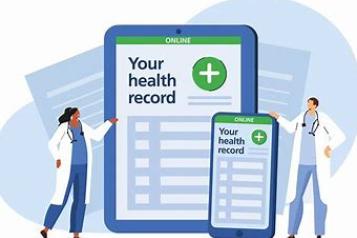Accessible Information Standard – Recommendations

By law, all publicly funded health and social care providers must fully comply with the Accessible Information Standard (AIS). The standard requires services to meet the information and communication needs of people who have a learning disability, a sensory impairment or loss. There’s a growing body of evidence suggesting that this is not happening.
With NHS England set to review the AIS, Healthwatch England have worked with partners to identify improvements and actions to help services meet the legally-binding requirement and understand its role.
They are calling for:
1. Health and care services to be made accountable for fully delivering the standard.
The Department of Health and Social Care, NHS England and the Care Quality Commission (CQC) should ensure that all individual health and care services meet their duties as set out under the AIS.
This new framework for accountability should maximise commissioning, contracting and performance management processes, and regulation at all levels to set clear expectations and monitor progress.
To support this and create clear accountability through the 42 new Integrated Care Systems (ICSs), they recommend that local boards appoint a member of the board responsible for ensuring that services meet communication needs of all their local citizens. This should include a role to gather more and better feedback from users on a continual basis and report back to the board annually.
Outcomes:
- Individual services and ICSs have a clear accountability system in place and can report back on how services support people who have communication needs.
- They can identify broader trends in people's experiences of accessible information and put in place measures to address areas of concern.
- New CQC assessments of ICSs become effective at holding service providers accountable for working together to meet the standard.
Responsible: Department for Health and Social Care, NHS England, CQC, other Arm's Length Bodies and leaders and ICS level, NHS Digital.
2. Every health and care service to have an accessibility champion.
Every health and care service should appoint an Accessible Information Champion to receive additional training and identify local challenges, barriers and best practices. These champions should report on how services deliver the standard back to ICS board lead.
Outcomes: Health and social care staff know who is responsible for leading local accessible information policy and delivery. All staff are aware they must comply with the standard.
Responsible: ICS leaders, health and care providers
3. Better IT systems so that patients can update services with their communication needs.
As part of the AIS review, NHS England should review current IT systems and present recommendations to ensure they comply with the AIS. The review should also address barriers to sharing information on patients' communication needs between services. Ultimately, IT systems should store data on patients' communication needs centrally so that services can access it whenever they need it rather than getting it through referrals as they currently do.
The NHS App should allow people to log their communication needs and update them if they change.
Outcomes
- People can easily update services with their communication needs.
- People's communication needs and preferences are part of their care records.
- Services have systems in place to share patients' communication needs.
- Services have access to a central database.
Responsible: NHS England, NHS Digital
4. Involving people with communication needs in designing better services
People with communication needs are essential to informing and creating change. Each integrated care system should establish a panel representing people with accessible information needs. They should involve the panels in reviewing existing services and monitoring how local services act on the AIS. Only services that include people in implementing the standard should be considered outstanding when assessed by the CQC.
NHS England should also work with the panels to develop national commissioning standards for communication support and ensure local services meet them.
Outcomes
- People with accessible information needs can regularly feedback on their experiences as part of quality improvement.
- Health and care services know where to go if they need input from people with communication needs on how best to support them.
Responsible: NHS England, ICS leaders
5. Mandatory training on accessible information for all health and care staff
Health and care providers should make detailed training on accessible information mandatory for all staff and recommend improving quality and consistency in delivering it. Training on accessible information should count towards professional development and be part of teaching curricula for students progressing to clinical careers.
Outcomes
- Staff understand the standard. They regularly provide information in the formats patients need and proactively ask about their communication needs.
- Staff are aware of the training available to them and extra local support.
Responsible: ICS leaders, the medical profession.
Downloads
This information is also available in Easy Read.
If you need this information in a different format, please email enquiries@healthwatch.co.uk or call 0300 0068 3000.
Find out how NHS trusts deliver the Accessible Information Standard
Between September and November 2021, Healthwatch England submitted a Freedom of Information requests to over 200 NHS provider trusts to gather details on compliance with the Accessible Information Standard.


